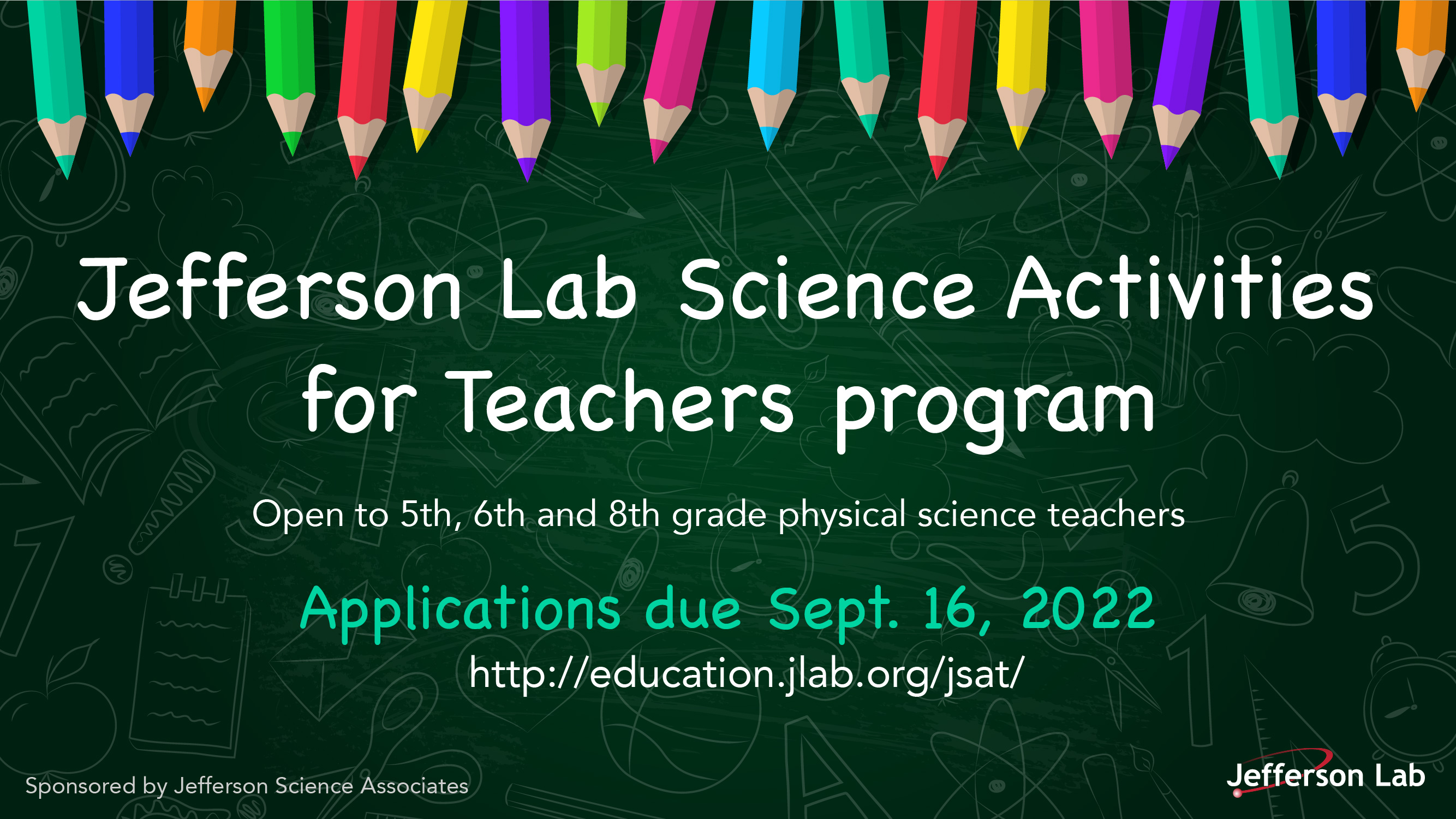Physical science teachers for 5th, 6th and 8th grade students are invited to apply for an after-school training program
NEWPORT NEWS – Science teachers work hard to ensure their students are engaged in learning through meaningful lessons and activities. But sometimes, teachers need inspiration to keep their repertoire fresh. Teachers of 5th, 6th and 8th grade science looking to energize their lesson plans are invited to apply to the Jefferson Lab Science Activities for Teachers (JSAT) program for the 2022-2023 school year. The JSAT program is offered by the Science Education team at the U.S. Department of Energy's Thomas Jefferson National Accelerator Facility.
The JSAT science education development program offers training designed to model curriculums, pedagogies, and more. It is designed to give teachers the chance to increase their classroom activities and strengthen their instruction skillset.
“We aim to support science teachers who are looking for ways to keep their course content fresh and who are in search of new activities to inspire their students,” says Lisa Surles-Law, Jefferson Lab Science Education team lead. “The program offers teachers a chance to reboot their lesson plans, connect with fellow teachers, and brainstorm new ways to present topics in the physical sciences.”
JSAT is an after-school program just for teachers. It begins in September 2022 and continues through May 2023. Teachers in JSAT meet weekly with their peers to enable a cohort-style development program. Topics of this year’s program include matter, energy transfer, force and motion, magnetism and electricity, atomic structure, waves and sound, simple machines, watershed and optics. In a nutshell, JSAT provides programming and development opportunities to help teachers build their skills in the physical sciences.
“In addition to topic discussion and lesson planning, we also will have full class sets of hands-on and interactive materials for some of the activities,” says Surles-Law. “These are turn-key sets and materials, so that our teachers can go into the classroom the very next day prepared to teach on the topic.”
Each program reflects the Virginia Standards of Learning and the National Science Education Standards. While teachers are refreshing their teaching skills and content, they also receive equipment and supplies and complete instructional materials, from lesson plans to student worksheets.
JSAT participants who attend at least 80% of the program will receive up to 48 recertification points and a small stipend. Participants also support wider professional development by participating in the Jefferson Lab Teacher Night each spring.
“The JSAT program really culminates in Teacher Night,” comments Surles-Law. “It’s like a science fair for teachers: All of our participants come together to help plan for this event and decide what newly developed hands-on physical science activities they will present to their colleagues.”
Additional information about the program and the application form is available at: http://education.jlab.org/jsat/. The application deadline for the 2022-23 program is Friday, Sept. 16, 2022.
JSAT is sponsored by the JSA Initiatives Fund program, which was established by Jefferson Science Associates to support programs, initiatives and activities that further the scientific outreach, and promote the science, education and technology missions of Jefferson Lab in ways that complement its basic and applied research focus.
Contact: Kandice Carter, Jefferson Lab Communications Office, kcarter@jlab.org


